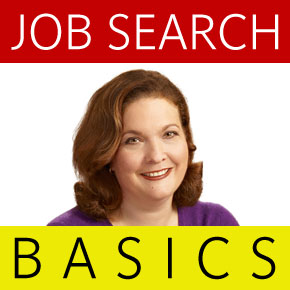On your resume, EXPERIENCE usually refers to your paid work experience. What if you don’t have a lot of paid experience? Look at volunteering your professional services to gain experience.
If you provide professional services to organizations or businesses as a volunteer or on a pro bono basis, that counts as experience. It’s professional experience because you are using your professional skills and abilities.
Often you will provide it to a non-profit or a small business. Perhaps the organization or small business is using you because they can’t afford to pay someone. That’s OK, as long as they need the service you provide. And your mission is to do the job well and produce results – hopefully measurable, so you can list the impact and any relevant numbers on your resume.You don’t need to say that you weren’t paid on your resume, as long as you are prepared to say it in the interview. And if you want to use that organization as a reference, make sure they know you are listing your work on your resume as professional experience.
Similarly, if you are an intern – paid or unpaid – you will list that experience under EXPERIENCE. It’s good to indicate the function you performed, not simply listing “Intern,” and essential to show the scope of your responsibilities and any impact you had.
For people who are unemployed and/or hoping to make a transition into non-profit work, you can have a section in your resume called “NON-PROFIT EXPERIENCE” or “VOLUNTEER EXPERIENCE.”
You do need to have done some volunteer work, of course. You can use your professional skills or skills you want to develop. In your volunteer work, you’ll be deploying skills like planning, organizing events, managing information, leading teams, writing, public speaking, and working on a team. One non-profit recruiter I spoke to said she would count the organizing of fundraisers for a school as fundraising experience.
For transitioning into non-profit, it is critical that you highlight your familiarity with the non-profit sector and your commitment to doing mission-focused work (as opposed to profit-driven work). Otherwise, recruiters will be very reluctant to take you on. They have been burned by for-profit people who think they want to work in non-profit only to decide they can’t stomach the pay scale and lack of amenities like bonuses, assistants, and paid travel.
Volunteering is a fantastic way for unemployed people to keep up and develop their skills, while still searching for work. One client parlayed a significant volunteer assignment into a great recommendation from the boss, that then helped her land a job doing similar work.
Perhaps you’ve served on a Board of Directors or been a member of an association related to your work or your interests. That, too, can count as experience. In a section I call AFFILIATIONS, list the organization and the role you play. You can list projects on which you worked, including the results you had or impact you made.
If the group is related to your profession, position or industry, you will demonstrate that you are involved in and up-to-date with your field – a very important thing to show especially if you have been unemployed for a while.
Finally, I like to include hobby affiliations like your sailing club, the fact that you’ve completed a marathon or are an improv actor, or that you are a regular member of a yoga studio. This gives readers some sense of who you are in terms of personality, provides an interesting point of discussion and way to ease into an interview for them, and shows a different kind of skill and ability – things that will illuminate a more complete sense of what you bring to the workplace. For example:
- Sailors work very well in teams and structured environments, yet they also have to adapt quickly to changing circumstances.
- Improv actors think on their feet, thrive in teams, are comfortable with risk, and are great public speakers.
- Marathon completers are disciplined, are able to set goals and achieve them, and keep going even when they may want to quit. Typically they work well alone, with support from others.
- A yoga devotee is comfortable with routine and challenges, likes being in a group, and enjoys learning and testing themselves – and may value work/life balance.
Most workplaces and employers will definitely want someone with one or more of these attributes.
Remember, not everything can fit in a resume, nor should it. Cover letters are another place for you to highlight an activity or experience relevant to the specific job for which you are applying.



very insightful!
thanks, Val!